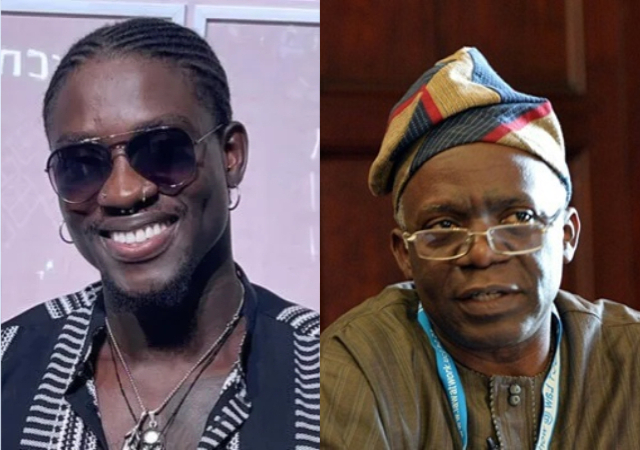Legal rights, and public discourse, social media personality Martins Otse, widely known as VeryDarkMan, has mounted a legal challenge against a recent court order restricting his commentary about prominent lawyer Femi Falana, SAN, and his son, musician Falz. The appeal, filed at the Lagos High Court, marks a new chapter in a defamation case that has captured public attention since allegations of a N10 million payment from controversial figure Bobrisky emerged.
The original ruling by Justice Matthias Dawodu on October 14, 2024, had directed VeryDarkMan to remove allegedly defamatory content and cease publishing comments about the Falanas across his social media platforms. The content in question centered on serious allegations that the father-son duo had accepted payment from crossdresser Idris Okuneye (Bobrisky) to manipulate justice system proceedings.
In his appeal, filed through two separate motions dated October 18, VeryDarkMan presents a legal argument centered on constitutional rights and judicial procedure. The social media influencer’s legal team argues that the initial court order, based solely on the respondent’s affidavit, requires special permission for appeal given its interlocutory nature.
The case raises important questions about the balance between free speech and protection from defamation in Nigeria’s increasingly digital public sphere. VeryDarkMan’s argument that the case involves “significant legal questions that merit further review” highlights the broader implications for social media commentary and legal accountability.
Central to the appeal is the contention that refusing leave to appeal could result in a miscarriage of justice. The social media personality’s legal team argues that such a refusal might lead to the enforcement of decisions that don’t accurately reflect proper application of law, potentially impacting not just the immediate parties but the broader administration of justice.
The timing of this appeal is particularly significant as it comes amid growing discussions about the responsibility and accountability of social media influencers in Nigeria. VeryDarkMan’s role as a self-proclaimed “social media police” adds another layer of complexity to the case, raising questions about unofficial watchdog roles in the digital age.
The case has broader implications for how Nigerian courts handle defamation in the social media era, where allegations can spread rapidly and cause significant damage before legal processes can intervene. The balance between preventing potentially harmful defamation and protecting free speech rights remains a crucial consideration.
The involvement of high-profile figures like the Falanas and Bobrisky has amplified public interest in the case. The allegations of attempted perversion of justice, involving a payment of N10 million, touch on sensitive issues of legal integrity and professional ethics, making the case’s outcome potentially significant for public trust in the legal system.
VeryDarkMan’s argument for judicial discretion to be exercised “judicially and judiciously” reflects a sophisticated understanding of legal principles, suggesting this case could set important precedents for how courts handle similar social media-related defamation cases in the future.
The appeal also highlights the evolving nature of public discourse in Nigeria, where social media influencers increasingly play significant roles in shaping public opinion and holding public figures accountable, albeit sometimes controversially.
As the case proceeds, it will likely continue to draw attention from legal observers, social media users, and the general public, all watching to see how Nigerian courts balance the rights of different parties in the digital age. The outcome could have lasting implications for how social media commentary on public figures is regulated and how defamation laws are applied in the digital sphere.
For now, the case remains a crucial test of the boundaries between free speech, social media influence, and legal protection from defamation in Nigeria’s evolving digital landscape. The court’s decision on VeryDarkMan’s appeal could set important precedents for future cases involving social media commentary and public figures.



